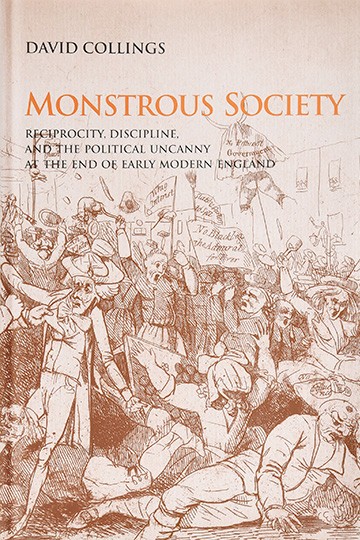
- Publisher: Bucknell University Press
- Available in: Hardcover
- ISBN: 1611483154
- Published: January 1, 2009
Monstrous Society problematizes competing representations of reciprocity in England in the decades around 1800. It argues that in the eighteenth-century moral economy, power is divided between official authority and the counter-power of plebeians. This tacit, mutual understanding comes under attack when influential political thinkers, such as Edmund Burke, Jeremy Bentham, and T.R. Malthus, attempt to discipline the social body, to make state power immune from popular response. But once negated, counter-power persists, even if in the demands of a debased, inhuman body. Such a response is writ large in Gothic tales, especially Matthew Lewis’s The Monk and Mary Shelley’s Frankenstein , and in the innovative, embodied political practices of the mass movements for Reform and the Charter. By interpreting the formation of modern English culture through the early modern practice of reciprocity, David Collings constructs a “nonmodern” mode of analysis, one that sees modernity not as a break from the past but as the result of attempts to transform traditions that, however distorted, nevertheless remain broadly in force.
Reviews
“David Collings offers a strikingly new perspective on social conflict in Britain during the Romantic period…Collings’ achievement in Monstrous Society is not just to demonstrate how…earlier radicalism was superseded by modern revolutionary politics, but how much of it survived, albeit in mutated forms, in the gothic literary imaginings of the nineteenth century.”
–Nigel Leask. BARS Bulletin & Review December 2010: 21-22.
“Colling’s argument is stimulating, if by definition schematic, overriding literary nuance to bring home its larger point.”
— Ian Duncan, SEL 2010: 917.
“..tells a compelling story of social history, and it grounds that story in rigorous and inventive readings of some of the most influential texts of the period. It is an impressive book.”
–James O’Rourke, SiR, 50 (Winter 2011).